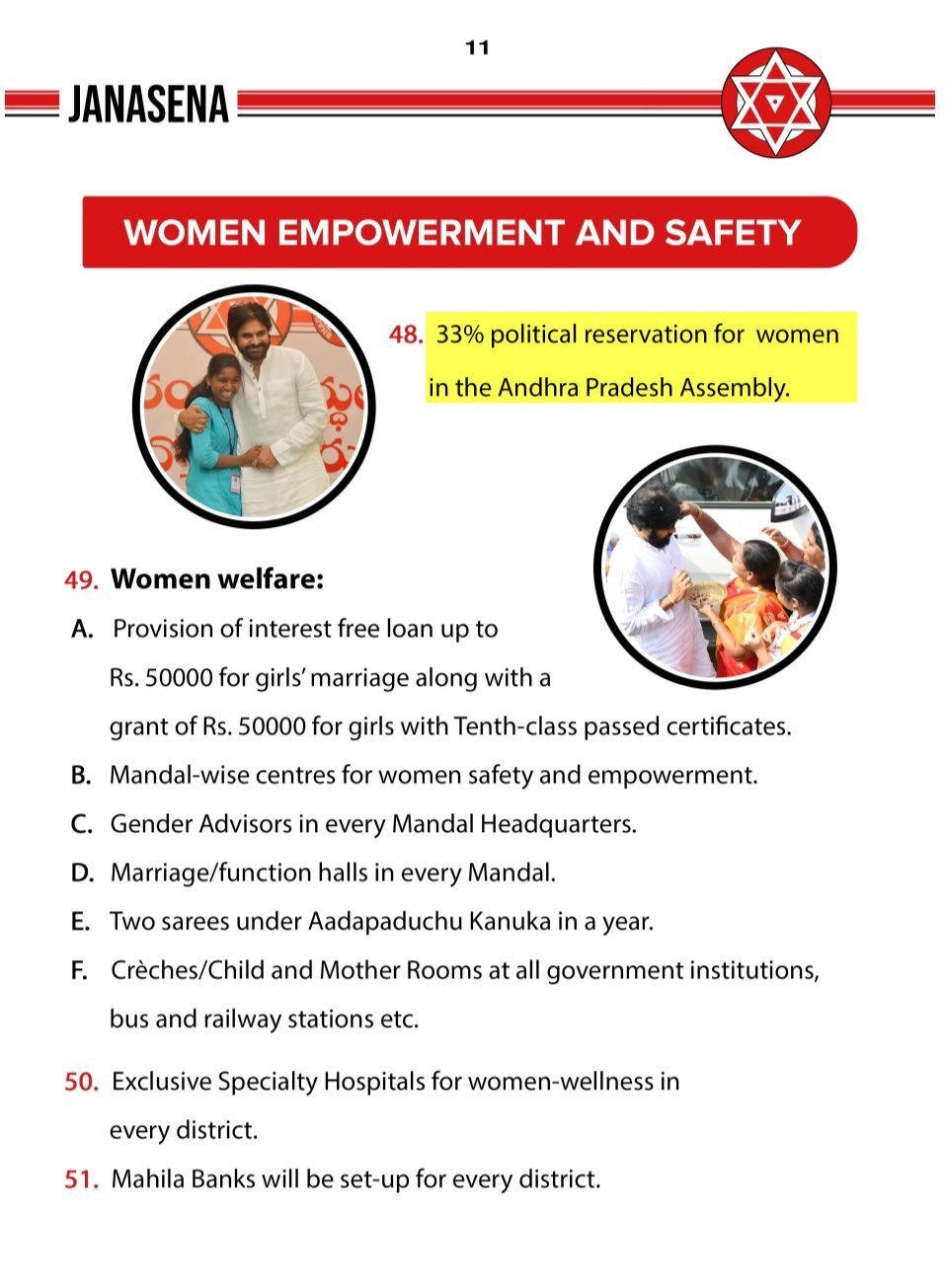Introduction
The recent alliance between the Telugu Desam Party (TDP) and Janasena Party (JSP) has sent shockwaves across the political landscape in Andhra Pradesh. With both parties coming together, there is a glimmer of hope for significant changes in the upcoming 2024 elections.
The 33% Political Reservation for Women
One of the key issues that has come to the forefront is the demand for 33% political reservation for women. Janasena Party has made a bold statement advocating for this reservation, and it remains to be seen whether the TDP will accept this decision.
Political reservation for women has been a long-standing demand of various women’s rights organizations and activists. It aims to address the gender imbalance in politics and provide equal opportunities for women to participate in decision-making processes.

The Impact of Reservation
If the TDP decides to accept the demand for 33% reservation for women, it would be a monumental step forward for both parties. By allocating 58 MLA seats to women, the alliance would not only be setting a precedent but also sending a strong message about their commitment to gender equality.
Such a move would not only empower women but also bring about a much-needed change in the political landscape. It would encourage more women to enter politics and create a more inclusive and diverse representation.
Benefits for Both Parties
The decision to reserve 33% of political seats for women would have several advantages for both the TDP and Janasena Party.
1. Women’s Empowerment
By providing greater representation to women, both parties would be actively contributing to women’s empowerment. This move would inspire women from all walks of life to engage in politics and take up leadership positions.
2. Enhanced Public Image
Adopting a progressive stance on women’s rights and reservation would significantly enhance the public image of both parties. It would demonstrate that they prioritize gender equality and are willing to take concrete steps to achieve it.
3. Expanded Voter Base
With 50% of the population being women, the decision to reserve seats for them would undoubtedly expand the voter base for both parties. This move would attract more women voters and potentially sway their decisions in favor of the TDP-JSP alliance.
Conclusion
The demand for 33% political reservation for women by the Janasena Party has undoubtedly sparked a much-needed conversation about gender equality in politics. If the TDP decides to accept this decision, it would not only be a game-changer for the alliance but also a significant step towards a more inclusive political system.
By allocating 58 MLA seats to women, both parties would be setting an example for others to follow. This move has the potential to empower women, enhance the public image of the alliance, and expand their voter base. As we approach the 2024 elections, it remains to be seen whether the TDP will embrace this progressive demand and pave the way for a more equitable political landscape in Andhra Pradesh.
